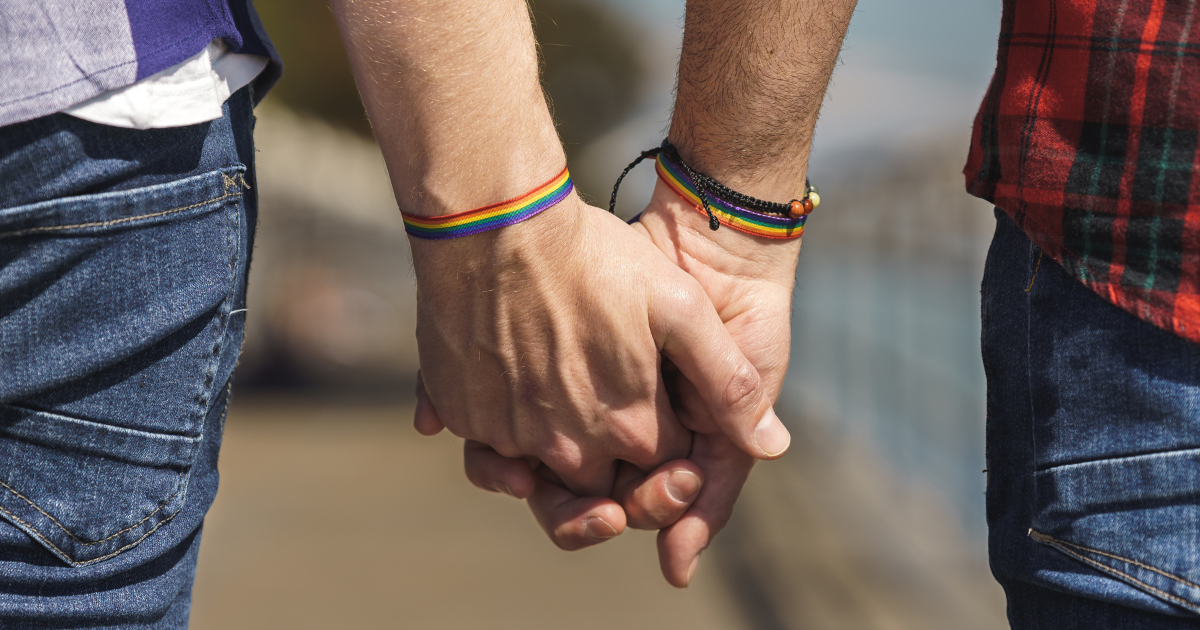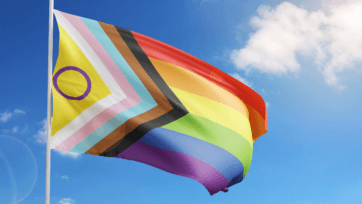20 February 2023 – The Australian Government has a unique opportunity to show leadership in Asia and the Pacific to advance LGBTIQ+ rights, a new international report has found.
Partnering with Pride, released on Monday, was written in partnership with LGBTIQ+ groups from Asia and the Pacific, the Global Philanthropy Project and Equality Australia.
The report recommends the Australian Government establish targeted funding of $15 million per year for LGBTIQ+ community groups in the region to help prevent legal and social stigma and discrimination.
The report also calls for a strategy to guide Australia’s approach on LGBTIQ+ issues in Asia and the Pacific and a high-level role to represent Australia internationally and lead engagement in this area.
The report’s release comes ahead of Sydney WorldPride’s Human Rights Conference whencommunity leaders, politicians, human rights experts and advocates from around the world will discuss the key human rights issues affecting LGBTQIA+ people.
Global Philanthropy Project Director Matthew Hart:
“Australia has a historic opportunity to respond to this report and meet the movements’ call to action at this pivotal moment of social, political and climate transformation.”
“Asia and the Pacific region are well-documented as being uniquely under-resourced for LGBTIQ+ communities. We welcome the government of Australia to join these under-resourced groups to defend and advance equality in the region.”
Equality Australia CEO Anna Brown:
“As Australia prepares to host Sydney WorldPride and the largest ever LGBTIQ+ human rights conference in the Southern Hemisphere, our Federal Government must act on the discrimination and disadvantage our communities face both at home and abroad. This is an opportunity for Australia to demonstrate its commitment to human rights and empower LGBTIQ+ people in our region to make the change they need to be free from discrimination and harm.”
“Working in partnership with these human rights groups – who are achieving change despite their limited resources – will improve the lives of hundreds of thousands of people.”
“Australia has strong social, economic and diplomatic ties to this region, and a track record of listening and working constructively to achieve positive change. It is time for us to as step up and support the most marginalised people in the countries closest to us.”
“Australia’s recently announced Human Rights Ambassador must actively promote LGBTIQ+ human rights, backed up by the resources and capability needed to ensure LGBTIQ+ human rights are prioritised in multi-lateral and bilateral diplomacy and dedicated funding is directed where it is most needed.”
ASEAN SOGIE Caucus Executive Director Ryan Silverio:
“Advancing the human rights of LGBTQIA+ people in ASEAN must be within the Australian Government’s imagination of a developed, resilient and secured region.”
“As a strategic partner of ASEAN, especially in the areas of security and development, Australia is positioned as a key actor in raising LGBTIQ+ issues within regional spaces.”
“We must address the increasing economic and social marginalisation of LGBTQIA+ people due to discriminatory practices in the areas of employment, livelihood, education and access to social services.”
APCOM Executive Director Midnight Poonkasetwattana:
“We need a community-led and community-owned intermediary funding mechanism for communities working on LGBTQI issues in the Asia Pacific region.”
“The Covid-19 pandemic really magnified the need for such a mechanism for advocates, activists and organisations to continue to do their important work in the region by reaching and helping the most marginalised that often falls outside the support of the government.”
“The Australian Government has an opportunity to help build and sustain this mechanism to ensure the human rights, resiliency and sustainability of LGBTQI people in the Asia Pacific region.”
Intersex Asia Co-Chair Hiker Chiu:
“We urge the Australian Government to help us to continue the important work we are doing to stop intersex human rights violations, raise awareness of the medical challenges intersex people face and encourage members of our community to be proud of who they are, just as they are.”
ILGA Asia Executive Director Henry Koh:
“Many of us in Asia are still coping with the pandemic and its aftermath, and LGBTIQ people across the continent are experiencing compounded hardship because of political instability, conflict, religious fundamentalism and anti-gender movements.”
“But success stories of equality are being heard across the region. With help from the Australian government, we will continue to advance the human rights of LGBTIQ people across Asia.”
Pacific Sexual and Gender Diversity Network (PSGDN) CEO Mx Isikeli Vulavou:
“Most Pacific LGBTIQA+ organisations struggle with resource mobilisation as there is no targeted funding for LGBTIQA+ issues.”
“Many countries in the region still criminalise homosexuality due to colonial-era laws. This criminalisation extends to the right to organise which means LGBTIQA+ groups are unable register, stopping vital programs, projects and initiatives from happening.”
“It is important that Australia prioritise LGBTIQA+ funding in the region as urgent law reform is needed to ensure no one is left behind. It is time for us to be brought into decision-making spaces.”
“The Australian Government has a vested interest in partnership with the region for Pacific peace and prosperity.”
Asia Pacific Transgender Network Executive Director Joe Wong:
“Historically, violence has devastated trans communities in Asia and the Pacific and damaged the social fabric of the communities they live in.”
“Although the Vietnamese and Indian government recently made a commitment to improve trans rights and ban conversion therapy practices, legal changes alone are insufficient.”
“Addressing the various forms of violence against trans individuals requires a collective effort to find solutions, increase understanding and heal wounds.”
“APTN is working to achieve this through research, advocacy and collaboration with grassroot trans and gender diverse communities, local and national governments, and international organisations to address human rights violations such as conversion therapy, hate crimes, and criminalisation.”
Background on Asia and the Pacific
Countries in Asia and the Pacific are home to some of the world’s harshest anti-LGBTIQ+ laws. Seventeen Asia-Pacific nations criminalise consensual same-sex relations, includingseven Pacific Island countries.
The punishment for this ranges from caning and stoning, to up to life in prison and in some cases even the death penalty.
LGBTIQ+ people typically face exclusion and discrimination across many aspects of their lives: at home, by extended family, in the broader community, at schools and workplaces, in hospitals or on the street.
Horrifying acts of violence are perpetrated against LGBTIQ+ people across the Asia Pacific region. Many LGBTIQ+ people flee their homes fearing forced marriages or to escape family violence and persecution. LGBTIQ+ communities are often used by political and religious leaders as scapegoats in moments of crisis. For example, in some countries the LGBTIQ+ community was blamed for the COVID-19 pandemic.
Across Asia and the Pacific, only a few countries have LGBTIQ+ anti-discrimination protections, and in countries that do have such laws – such as Australia – there remain outdated carve-outs for religious schools and other organisations. Most countries – including Australia — permit non-consensual medical interventions on intersex people, which the UN has classified as a form of torture, and restrict the ability of people to update gender markers in identity documentation such as passports and birth certificates, impacting their ability to access employment, education and social services.
As a result of this discrimination, in many countries across Asia and the Pacific, LGBTIQ+ people are forced to live on the margins. They are more likely to experience poverty and homelessness, be employed in the informal sector and struggle to get appropriate health care.
The case for funding
The region is home to a strong and vibrant LGBTIQ+ equal rights movement. Local communities and their allies are building real momentum for equality, and there is a significant and growing movement of organisations pushing for legislative changes while working to improve the day-to-day lives of LGBTIQ+ people.
Because of their efforts, change is possible.
Since 2005, six Pacific Island countries have decriminalised same-sex sexual acts, winding back – in some instances – colonial era laws. There is active campaigning for decriminalisation in a number of other Pacific countries. In 2022, Singapore repealed a section of its criminal code criminalising adult consensual sex between men, and Vietnam outlined guidelines for the equal treatment of LGBT people in healthcare settings, including banning the use of conversion therapy.
In places like the Pacific, this success has come from local advocates engaging at the community and interpersonal level, including dialogue with faith leaders, many of whom have demonstrated a willingness to listen and learn.
But there is still a long way to go. Recent hard-fought for gains have come with caveats, such as in Singapore where the 2022 reforms also amended the constitution to strengthen the existing definition of marriage as between a man and a woman.
Although international partners have provided some support in recent years, Asia and the Pacific receive some of the world’s lowest levels of funding for LGBTIQ+ people and the human rights organisations working on the ground lack the resources they need.
Opportunities for Australia
Australia has an opportunity to further its diplomatic objectives in the region by engaging constructively with regional partners on LGBTIQ+ issues in a way that recognises local leadership and respects local voices.
Funding LGBTIQ+ rights also opens doors with other like-minded donors like the US, and Australia has an opportunity to replicate our significant global achievements in gender equality and disability rights.
The level of funding proposed in this report ($15m annually) is modest but would still place Australia among the top bilateral donors on LGBTIQ+ equality in dollar terms.
Finally, there is an opportunity for Australia to strengthen its development effectiveness and leadership. LGBTIQ+ issues are a conspicuous gap in Australia’s otherwise strong approach to social inclusion in its overseas development assistance.
Media Contact: Tara Ravens 0408 898 154. tara.ravens@equalityaustralia.org.au
Partnering with Pride: The case for Australian action on equality in our region.
Download the full report here: Partnering with Pride: The case for Australian action on equality in our region – Equality Australia


